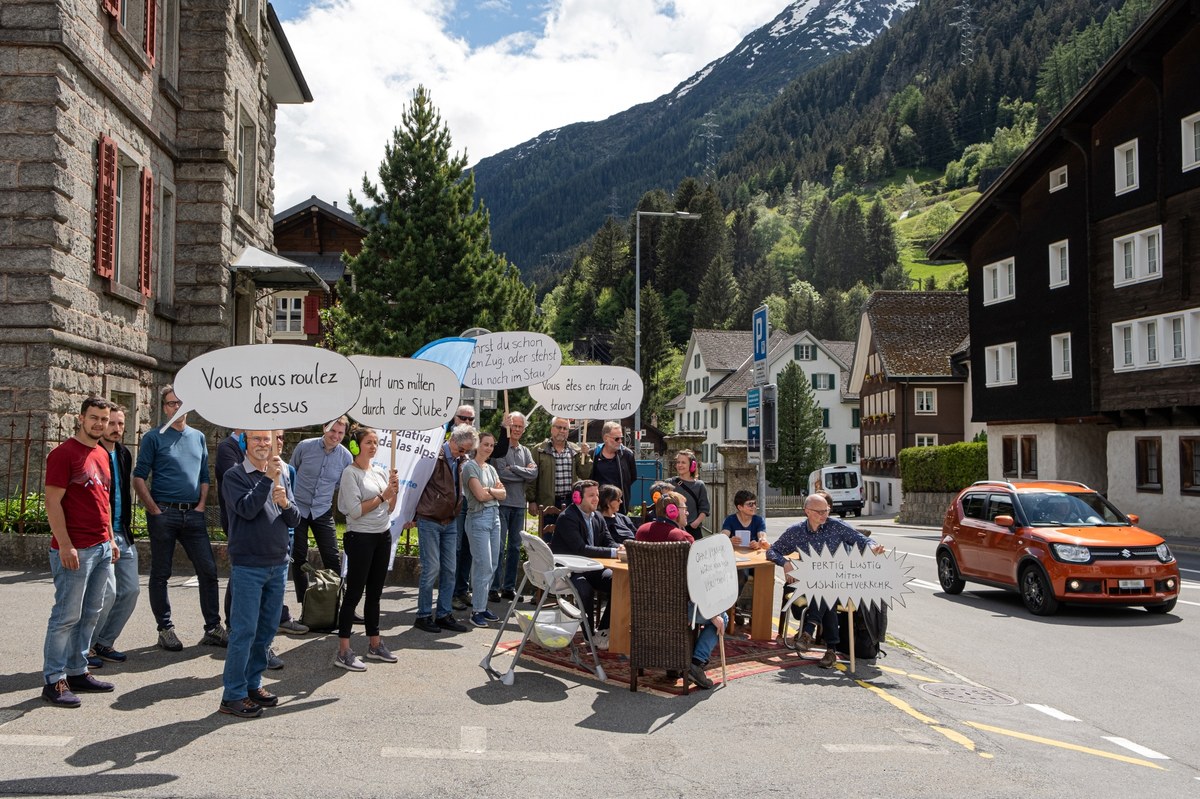Sustainable traffic management, not lawsuits
CIPRA representatives along the transport axis over the Brenner Pass are calling for sustainable traffic management instead of populist grievances. Now Switzerland is facing a renewed increase in traffic.
The EU Commission has cleared the way for Italy to take legal action before the European Court of Justice against Austria’s driving bans on the Brenner motorway. “If such a lawsuit is successful, i.e. if the driving bans on heavy vehicles are lifted, then all other barriers will fall”, fears Josef Oberhofer, president of the South Tyrolean umbrella organisation for nature and environmental protection. “The lawsuit by Italy’s Transport Minister Salvini represents a new low point in cross-border cooperation in the transport sector”, says Stephan Tischler, chairman of CIPRA Austria and transport planner at the University of Innsbruck. “Together with the EU, EU member states are called upon to harmonise rail transport and increasingly promote a modal shift in upcoming amendments in order to exploit the potential of rail and create greater cost transparency in line with the Transport Protocol”, explains Tischler. Francesco Pastorelli, director of CIPRA Italy, also hopes that “the European Union and the countries concerned will take concerted action, with effective measures to reduce and shift traffic”. Uwe Roth, director of CIPRA Germany, criticises media reports that suggest that hydrogen- or electric-powered lorries would be a better solution: “The fact that people are only focusing on the second most efficient solution with reference to the status quo is quite striking. Drive turnaround instead of transport turnaround – just like the automotive industry.” Not only does rail transport use energy much more efficiently than lorries, it is also more environmentally and socially compatible than road freight transport in terms of land utilisation, particulate matter and noise. “The latter applies above all to the Alpine region with its narrow valleys and even the electrification of lorries cannot change this.”
Protection against rising traffic volumes
Resistance is also growing in Switzerland as the summer season begins on the Gotthard Pass. The number of lorries travelling through the Swiss Alps has again risen since 2020, reaching 916,000 in 2023, far more than the legally stipulated maximum of 650,000. Added to this is the unchecked growth of passenger and leisure traffic. At the end of May 2024, the Alpine Initiative organised a campaign in the municipality of Wassen to draw attention to the problem of traffic passing through Alpine villages. The organisation, which has been in existence for 30 years, also called upon the Federal Council to protect the Alps from the negative effects of traffic by means of a resolution, as the director of the Alpine Initiative, Django Betschart, explains: “Thanks to the Alpine Initiative, since 1994 the protection of the Alpine region from the negative effects of traffic has been enshrined in the Swiss constitution. However, the federal government is still not adequately performing this duty – as the rising traffic figures make clear. The population is suffering”.
Sources and further information:
https://tirol.orf.at/stories/3257162/ (de), www.ots.at/presseaussendung/OTS_20240515_OTS0156/alpentransit-eu-und-alpenstaaten-sind-gefordert-gemeinsam-ein-nachhaltiges-verkehrsmanagement-umzusetzen (de), www.umwelt.bz.it/aktuelles/presse/dvn-pm-eu-entscheidung-fahrverbote-cs-decisione-ue-divieti-di-circolazione.html (de), www.spiegel.de/auto/lkw-so-steht-es-um-elektro-und-wasserstoffantrieb-a-acb480b6-f9cb-4356-bd55-d2310a73b3a0?giftToken=6a8f59b8-36a8-482f-b5e8-f52548a99560 (de), www.alpeninitiative.ch/mm_mitgliederversammlung-2024/ (de)


